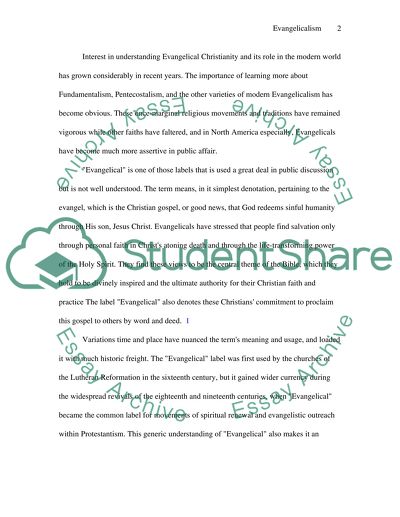Cite this document
(“Evangelicalism Essay Example | Topics and Well Written Essays - 1500 words”, n.d.)
Evangelicalism Essay Example | Topics and Well Written Essays - 1500 words. Retrieved from https://studentshare.org/religion-and-theology/1516628-evangelicalism
Evangelicalism Essay Example | Topics and Well Written Essays - 1500 words. Retrieved from https://studentshare.org/religion-and-theology/1516628-evangelicalism
(Evangelicalism Essay Example | Topics and Well Written Essays - 1500 Words)
Evangelicalism Essay Example | Topics and Well Written Essays - 1500 Words. https://studentshare.org/religion-and-theology/1516628-evangelicalism.
Evangelicalism Essay Example | Topics and Well Written Essays - 1500 Words. https://studentshare.org/religion-and-theology/1516628-evangelicalism.
“Evangelicalism Essay Example | Topics and Well Written Essays - 1500 Words”, n.d. https://studentshare.org/religion-and-theology/1516628-evangelicalism.


